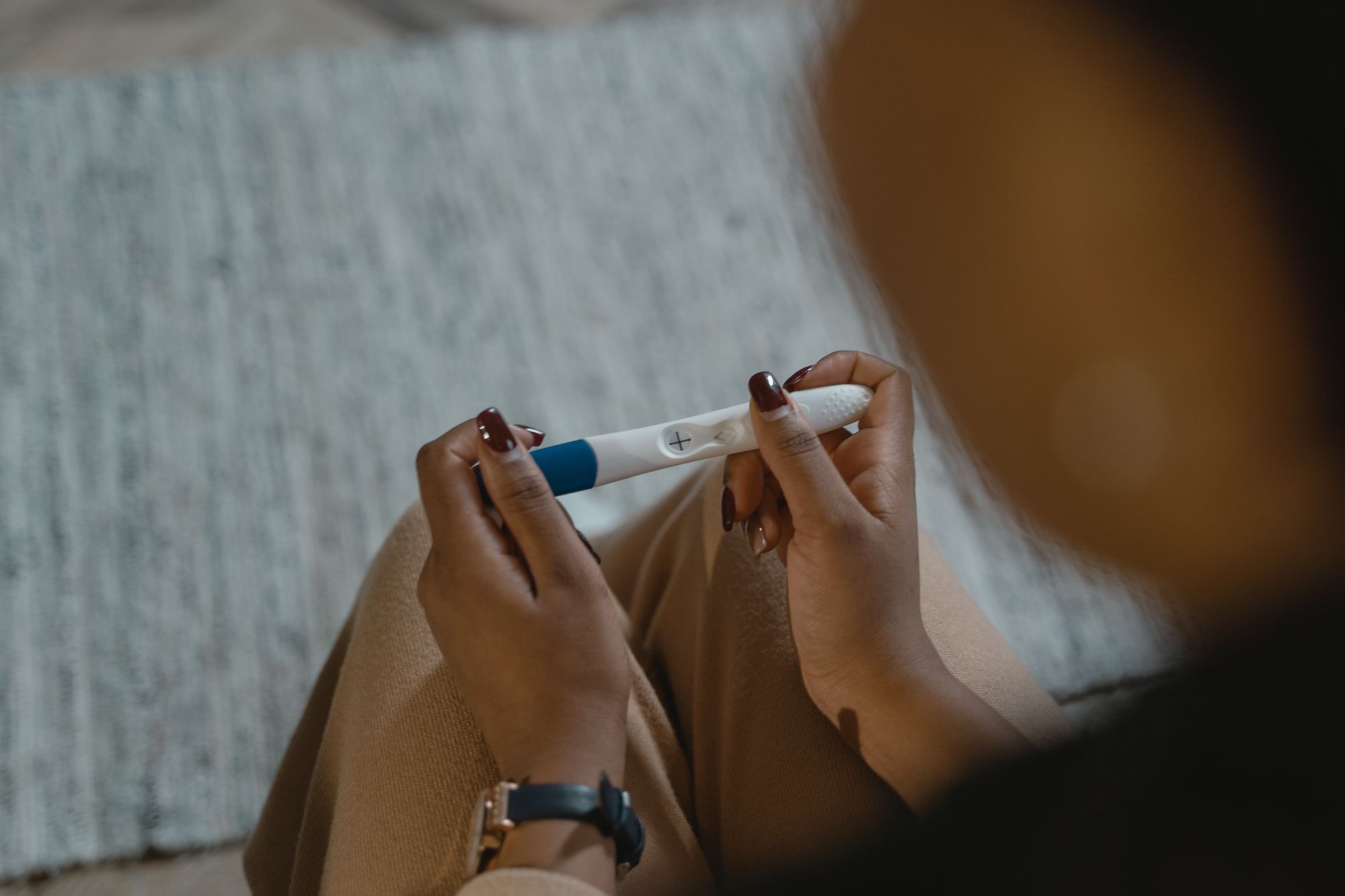Birth Control Methods: How to Choose the Most Effective
Birth control methods prevent unprepared pregnancies. But there are different forms of birth control. Discover how to choose the most effective.

Sexual pleasure is something to look forward to, but pregnancy isn't always a welcome idea. This is because 85% of women who continuously have sex without birth control get pregnant within one year. And raising a child requires adequate planning.
But you can eat your cake and still have it by understanding birth control options and how effective they are.
In this post, we'll cover:
- Basics of birth control - what it is and how it works
- Factors to consider before choosing a type
- Types of birth control and their effectiveness
- Frequently asked questions about birth control

So, what is birth control?
Any method you or your partner can use to prevent pregnancy is termed "birth control".
It ranges from sexual practice to drugs, devices, surgical procedures, and hormones. As long as what you choose delays pregnancy from occurring.
But how does it work?
For pregnancy to occur, a male's sperm needs to fertilize the female eggs. This fertilisation process is what birth control prevents from happening.
While some methods work by preventing sperm from fertilising an egg. Others work by preventing the release of an egg from the ovary (ovulation).
Some birth control methods only work if they are used at specific periods during a menstrual cycle. And you may need to use others daily or when you're about to have sex.

What should you consider before choosing a birth control method?
What kind of lifestyle do you have?
The kind of person you are and how you live can influence your choice of birth control. For instance, if you enjoy frequent sex, opting for an implant rather than pills or condoms may be better.
How effective is the birth control method?
How well does the method you intend to choose work? Is it a fail-proof method?
Some birth control methods require you to use them consistently or at certain times each month. Others can be used anytime without fail.
If you find a method that's more effective than the other, it'll be better to go for that. However, the effectiveness of birth control depends on many factors, for instance, how well you follow instructions.
What is your age?
Age also plays into how effective birth control will be for you. In this journal, you'd find that younger women are more prone to pregnancy after using birth control than older women.
Also, if you're young, you may not be open to the idea of permanent birth control.
What are the side effects of the birth control method?
Before choosing a birth control method, you must consider its side effects and potential health risks.
For instance, some hormonal methods can cause breast tenderness or acne.
And you may also find that you're allergic to a type of birth control. Should this be the case, you'd need to opt-in for other forms of birth control.
Do you have underlying health conditions?
Your choice of birth control can be influenced if you have medical conditions, such as allergies to latex or rubber. In this case, you'd want to find an alternative that won't affect you.
Some methods can also be dangerous if you combine them with your current medications.
What is the cost of your preferred method?
As much as this might be an obvious factor, it's still important to reiterate it. Some birth control options are more affordable than others.
You should, however, always think about the effectiveness of the option you want to choose.
You'll also need to factor in how long each method lasts before deciding what works best financially.
When considering a birth control method, talk to your healthcare provider to help you choose the best one.
TL-DR: When you want to choose a birth control method, factor in your lifestyle, your age, your health condition, the effectiveness and side effects of the method you want to choose. Speak to a health specialist before deciding.

What types of birth control methods are available?
Today, there are different birth control methods, each with unique benefits and disadvantages. It's essential to know how effective each one is before deciding which is best for you.
The most common types of birth control are:
Contraceptive pills
You can take medications to prevent sperm from fertilising the egg.
No fertilisation = No Pregnancy
These drugs contain hormones, estrogen or progestin, which thicken the cervical mucus. This thickening makes it difficult for the sperm to swim into the membrane that houses the egg.
Birth control pills are about 99% effective when taken as directed.
Condoms
Another popular contraception works by creating a barrier preventing sperm from reaching the egg.
A condom can be worn over the penis or inserted into the vagina during sex.
But not wearing it properly can allow semen leak into the vagina.
Condoms are about 95% effective when used correctly.
Birth control patches
You can opt for this method if you don't want pills. It works in similar ways. It's just that you won't be taking this orally.
You'll need to attach this patch to your skin with an adhesive. It will then release estrogen and progestin in small doses every 24 hours. As stated earlier, these hormones can prevent ovulation, i.e., eggs will not be fertilised.
The patch works every day for three weeks, after which you'll remove it for menstruation to occur.
However, it's recommended to replace the patch weekly for maximum effectiveness.
Patches are about 99% effective when perfectly used.

Vaginal ring
These are small, flexible rings that can be inserted into the vagina.
They also work by releasing hormones that prevent ovulation by thickening the cervical mucus.
For maximum effectiveness, insert the ring into the vagina for three weeks, then remove it for a week. Keep repeating this process until you're ready to allow fertilisation.
Vaginal rings are about 99% effective when used correctly.
Intrauterine devices (IUD)
These are small devices that can be placed in the uterus. They release hormones or copper to prevent pregnancy.
IUDs work by preventing pregnancy in two ways: releasing hormones to prevent ovulation and making the lining of the uterus unsuitable for implantation.
Copper causes the uterus to thicken and dry up, making it difficult for sperm to reach an egg. The copper IUD has a five-year effectiveness rate when used correctly.
IUDs are about 99% effective at preventing pregnancy.
Birth control injections
These shots contain progestin and estradiol, another female hormone that thins the uterine lining. This process makes the uterus less fertile, ensuring there's no chance of becoming pregnant.
The injection is given once every three months.
This method is 99% effective.
Spermicide
This cream or jelly can be inserted into the vagina to kill sperm before it enters the uterus.
Spermicide is mainly used with other forms of birth control. They are less effective when used as the only birth control method.
They are 72% effective when used alone.
Birth control implants
This clinical method involves inserting a small rod under the skin on the upper arm. This rod will then release hormones that will prevent ovulation from occurring.
They are 99% effective.
TL;DR: There are a host of birth control methods, some of which include; contraceptive pills, condoms, patches, rings, IUDs, injections, spermicides, and implants.
Frequently Asked Questions
What does birth control do to your body?
Since there are different forms of birth control, each has its unique effectiveness and potential side effects. Here's a look at what some forms of birth control can do to your body.
- Hormonal birth control comes in many forms, including pills, patches, rings, shots, and implants. They release hormones into the body, preventing it from ovulating. These hormones then thicken the mucus in your cervix, making it harder for sperm to reach and fertilise an egg. Some potential side effects include weight gain, headaches, mood swings, and nausea.
- Copper IUDs work by releasing copper into the uterus. This creates an unfriendly environment for sperm, preventing them from fertilising an egg. They can last up to 10 years, making them a long-term option for contraception. Some of their side effects include heavier and longer periods. Some women also report cramping and backaches after getting a copper IUD.
- Condoms use barrier method, which prevent sperm from reaching and fertilising an egg. They're available in male and female varieties and can be made from latex, polyurethane, or lambskin. Side effects of condoms are typically minimal. However, you may be allergic to latex condoms, which can cause irritation, itching, and swelling. Polyurethane condoms are a good alternative if you have latex allergies.
- Spermicides work by killing sperm before they can reach and fertilise an egg. They come in the form of foams, creams, gels, films, and suppositories that are inserted into the vagina before sex. Their side effects include irritation, burning, and itching. If you have allergic reactions to spermicide, stop using it and speak with your doctor.
The best way to figure out which type of birth control is right for you is to talk to your healthcare specialist. They will help you weigh the pros and cons of each option and choose the best for your needs.
Do birth control pills cause weight gain?
There are a lot of myths about birth control. In fact, you might have heard that birth control pills cause weight gain.
However, there's no concrete evidence to support this claim.
In reality, birth control pills can help regulate your period and make it less painful.
What are things to consider when choosing a birth control method?
Choosing a birth control method can be a challenge. You have a lot to put into consideration. However, the most crucial factor is whether you still want children. This is because some methods are irreversible.
Other factors include your age, health, and lifestyle.
When do birth control pills start working?
The answer to this depends on the type of birth control pill you take.
Generally speaking, most birth control pills start working immediately or within a few days.
However, it's also important to note that some take up to a month for the full effect to kick in. So, if you are thinking about starting birth control pills, plan and make sure you know everything you need before taking them.
Final Thoughts
By choosing the right birth control method, you'll experience a well-deserved peace of mind while enjoying sexual pleasures. But you also must ensure you're using your preferred method as prescribed.
Whether it's a hormonal method or a barrier method, continuity is important for maximum effectiveness. This is why we've curated a sexual care package to make your satisfaction easier.
And if you need more help, our Care Specialists will guide you through because sex without memorable flashbacks is a waste of time and energy.
Get our sexual care package today to make your safe sex great sex.
